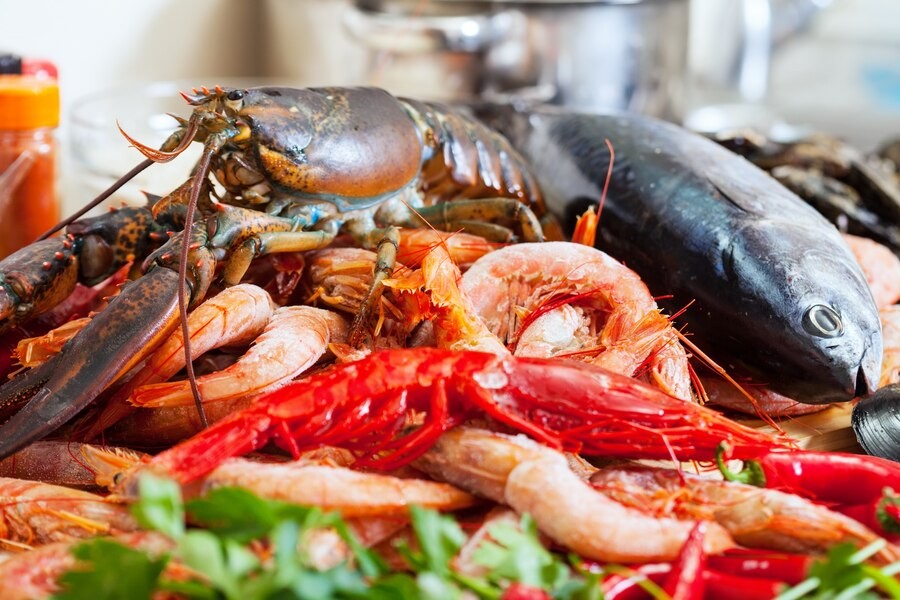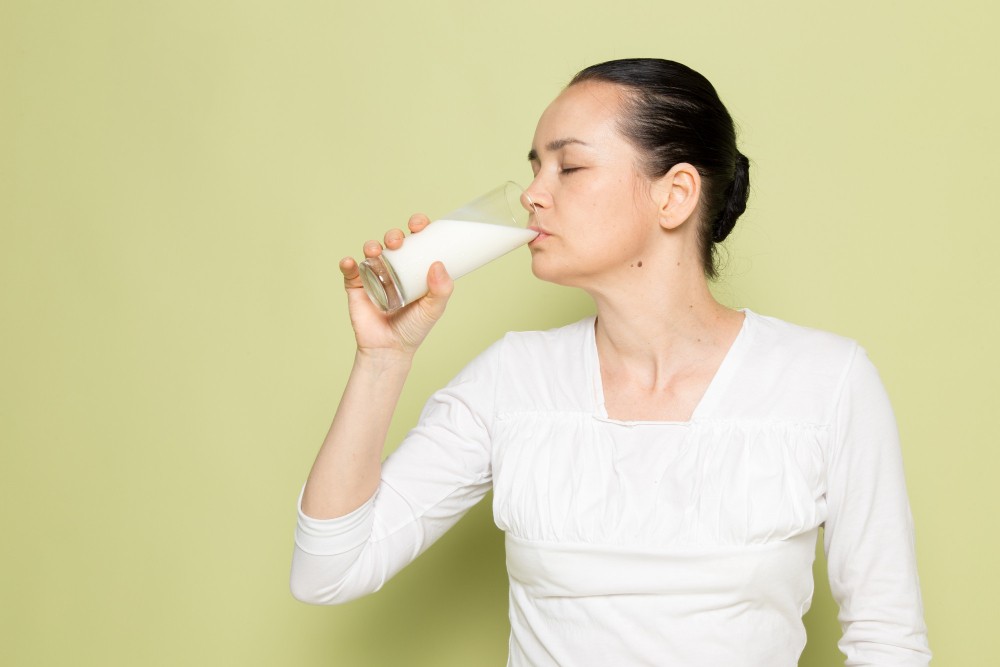Iodine is an essential mineral that plays a crucial role in supporting thyroid gland function. The thyroid gland produces hormones responsible for regulating metabolism, growth, and nervous system development. A deficiency in iodine can lead to various health complications.
To ensure adequate iodine intake, you can incorporate iodine-rich foods into your diet or consider supplements when necessary. So, what are the best food sources of iodine? Find out more in the following discussion.
Sources of Food High in Iodine
You don’t need to rely solely on supplements to fulfill your daily iodine requirements. This essential mineral is naturally present in a variety of everyday foods, including:
Iodized Salt
Iodized salt is one of the most accessible and affordable sources of iodine, making it a recommended choice for meeting daily iodine needs. In Indonesia, most salt products available in the market are already fortified with iodine. The government has actively promoted the use of iodized salt through various public health initiatives to ensure widespread iodine intake.
However, while iodized salt is beneficial for health, excessive consumption should be avoided. Overconsumption of salt can increase the risk of high blood pressure and other health issues.
Seafood
Seafood is widely recognized as an excellent natural source of iodine. Some commonly available fish and seafood in Indonesia that are particularly rich in iodine include:
- Cod
- Salmon
- Tuna
- Sardines
- Mackerel
- Gourami
- Squid
- Shrimp
- Mussels
- Seaweed
Milk and Dairy Products
Milk and dairy-based products, such as yogurt and cheese, provide a substantial amount of iodine. Besides being a good source of iodine, these products also offer essential nutrients like calcium, protein, and vitamin D, which contribute to bone health, muscle function, and immune support.
Eggs
Eggs, particularly the yolks, contain iodine naturally. A single medium-sized egg can provide around 10% of an adult’s recommended daily iodine intake.
Although eggs do not contain as much iodine as seafood or dairy products, they remain a valuable dietary option to help meet daily iodine requirements.
Liver
Beef liver is another excellent source of iodine, in addition to being rich in iron, vitamin A, vitamin B12, and folate. Liver can serve as an alternative iodine source for those looking to diversify their intake.
However, individuals with certain health conditions should consume liver with caution. Since it contains high levels of purines, those with gout-related issues are advised to limit their intake.
To ensure adequate iodine intake, make it a habit to use iodized salt in meals, consume seafood regularly, and check nutrition labels to verify iodine content in food products.
If you have specific medical conditions or are pregnant, consult a healthcare professional to determine your optimal iodine intake. You can also use the Ai Care app for health consultations, available for download on the App Store and Play Store.
Looking for information about nutrition, food and other diet tips? Click here!
- dr Hanifa Rahma
Kaitlyn Berkheiser (2023). 9 Healthy Foods That Are Rich in Iodine. Available from: https://www.healthline.com/nutrition/iodine-rich-foods
Stephanie Booth (2024). Health Benefits of Iodine. Available from: https://www.webmd.com/diet/health-benefits-iodine
Health Direct (2023). Iodine and your health. Available from: https://www.healthdirect.gov.au/iodine
Cleveland Clinic (2022). Iodine Deficiency. Available from: https://my.clevelandclinic.org/health/diseases/23417-iodine-deficiency
Yveltte Stines (2024). 10 Iodine-Rich Foods. Available from: https://www.verywellhealth.com/iodine-rich-foods-5101657












